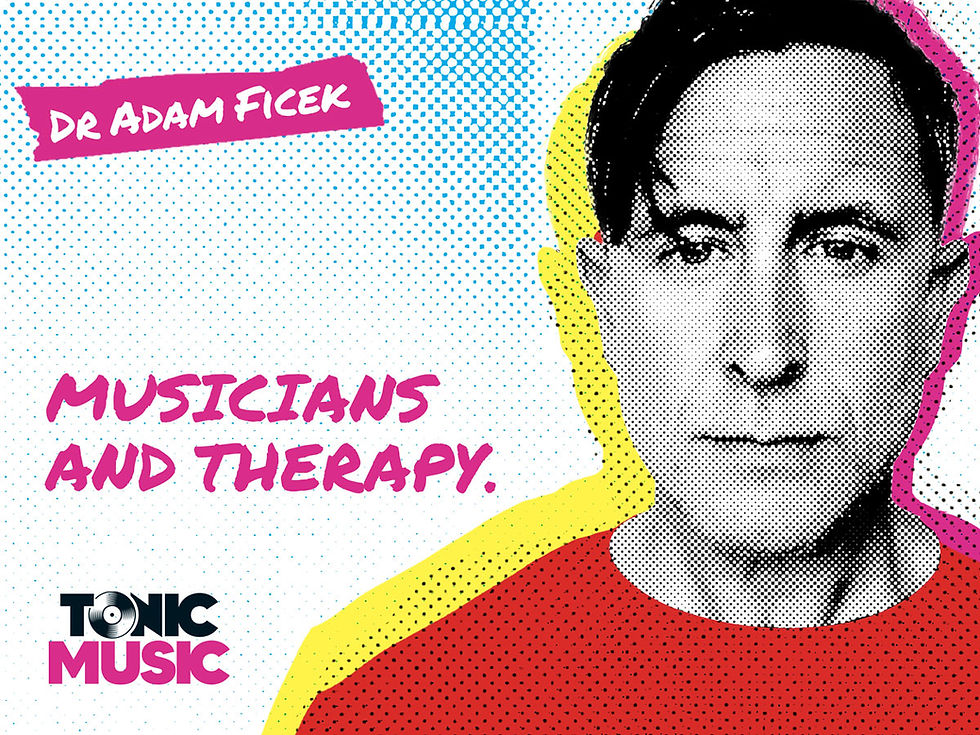Musicians and Therapy.
- Team Tonic

- Aug 7, 2025
- 3 min read
Welcome back to Blog 101!

This week sees the release of a study I am doing on musicians and therapy (which you can take part in here). My goal is to try and find out whether professional, (non-classical) musicians/DJs/etc have certain preferences for three factors when it comes to therapy.
A: Being given strategies
B: Experiencing more emotionally intense interactions
C: Preferring a therapist that has experience of being a musician in the music industry.
I don’t know whether any of these things will actually be preferred but I am making some assumptions based on other existing research. I often hear from the peer group attendees that it is easier talking to someone that understands the world of musicians from either the industry or musicking perspective but….there’s no definitive answer, we are all different. So, if you are a musician, please give me 60 seconds and give it a go. You don’t need to have had therapy to complete the survey.
In other news, Tonic Music have finalised a plan to start Therapy Groups with musicians which is different to the Peer Support Groups.
Peer Support Groups are great for having a supportive environment and sharing experiences, but these Therapy Groups will help to go a little deeper and potentially offer many different factors such as:
Altruism: People in the group can support each other by sharing their strengths and offering help. This can really boost confidence, self-esteem, and even make it easier to be open and vulnerable.
Corrective family experience: A therapy group gives us the chance to look at how our early experiences shaped who we are and how we act. With honest feedback from others, we can also work on letting go of unhelpful or harmful patterns.
Learning social skills: Group therapy is a great place to try out new ways of interacting with others. It’s a safe space to experiment and practice without worrying about messing up.
Copying helpful behaviours: We can learn by watching others in the group or by following the lead of the therapist. It’s a natural way to pick up new ways of thinking or acting.
Learning through relationships: Talking with others in the group and hearing their feedback can lead to powerful self-discovery and a better understanding of ourself.
Feeling connected: Being part of a group where everyone’s working toward feeling better can help build a strong sense of belonging and acceptance.
Letting it out (Catharsis): Talking openly about our feelings and experiences with others who listen and care can be a huge relief and help ease stress, guilt, or emotional pain.
Facing life’s realities (Existential factors): While the group offers support, it also helps us see that we’re in charge of our own lives and choices. This can lead to feeling more in control and empowered.
Self-awareness: Hearing how others in the group see us can help us self-reflect more clearly. It gives us a fresh perspective and helps challenge old ways of thinking.
So, get in touch if you want to be involved, click on any of the links below.

Adam Ficek hosts a monthly show 'Tonic Music' on Totally Wired Radio, where he talks to various guests about music and mental health. You can listen again to any of the previous show on the Tonic Music Mixcloud page.




